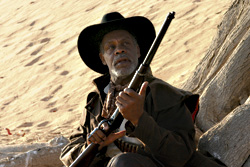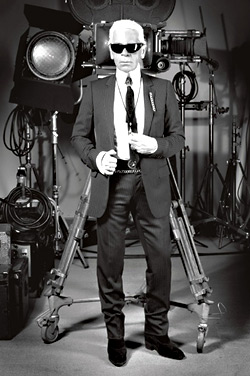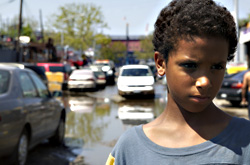Drawing equally from declamatory African traditions and European modernist procedures, Bamako stages a kind of Third World Epic Theater. Set in quiet corner of Bamako, the capital of Mali, events unfold in a hot, hazy, gnat-filled courtyard that serves as a makeshift courtroom. White-wigged African judges preside over the proceedings. Witnesses take the stand and testify. Counsel for the defense and the prosecution (both white men) cross-examine and make statements. The crimes are immense and abstract; the defendant can only be tried in absentia. Bamako puts nothing less than economic injustice on trial, arguing the guilt of the World Bank, the IMF, and the entire apparatus of First World economic domination for the crime of African oppression. One by one, witnesses for the prosecution (a writer, a professor, a farmer) take the stand and eloquently unload woe: the injustice of debt, the consequences of privatization, the crippling effect of structural adjustment policies. If it sounds like a chore, it plays out with charm, the didacticism enlivened by persuasive detail, the anger leavened by empathy. Bamako brings relief from the latest round of Africa chic in the media, reversing “the flood of information that flows one way.” It colors the Africa Problem from the inside out.
Bamako: Justice in Africa (If Only On-Screen)








